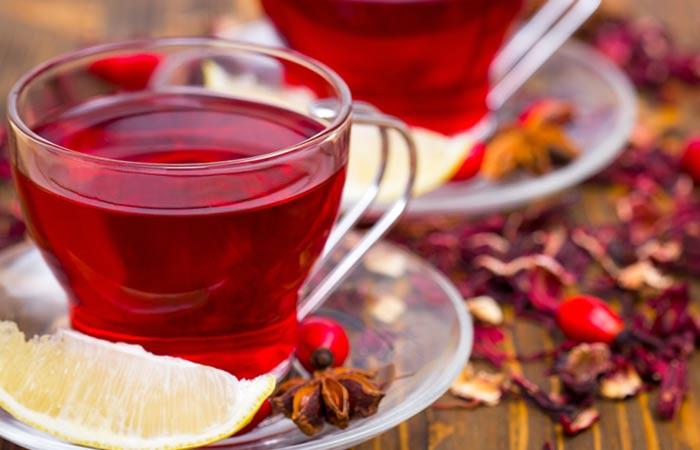Hibiscus tea is a caffeine free herbal tea produced from the flowers of the Hibiscus sabdariffa or “Roselle” plant. The tea is produced from the sepals or calyces (the petal-like structure at the base of an flower), instead of from the actual petals. Hibiscus teas are a trendy beverage in numerous countries from Asia through Africa on the Caribbean, and various countries their very own unique means of preparing the drink.
In some areas, including areas of China, hibiscus is blended with black tea. But not as well-known from the U.S., hibiscus is a type of ingredient in herbals. Hibiscus imparts a tangy flavor and a deep purplish-red color to blends of which it is a part.
Health improvements of Hibiscus and Hibiscus Tea:
The standard reasons like hibiscus add the treating hypertension (hypertension), the lowering of fever, and treating liver disorders. Unlike many herbs, hibiscus continues to be studied fairly extensively and there are even some fairly conclusive human studies establishing not only its usefulness for assorted treatments, but comparing it to widely-used medications and exploring side-effects. Although a lot of the studies use standardized extracts of hibiscus, hibiscus tea has become studied to some extent and shows promise the tea itself are needed like a treatment occasionally.

Lowering blood pressure level – Along with numerous animal studies supporting its use for hypertension, human studies have validated that hibiscus, including hibiscus tea can effectively lower blood pressure levels. Hibiscus sabdariffa extract has been compared to the drug captopril, and it was seen to be equally effective. A more recent study compared it to lisinopril and found rrt had been not as effective as that drug, but showed an absence of intense unwanted effects.
Lowering fever – Hibiscus is proven in laboratory animals to possess fever lowering (antipyretic) properties. There is certainly evidence suggesting that its mechanism of action differs from that relating to aspirin, that also lowers fever.
Protecting the Liver – The end results of numerous chemicals for the liver tend to be more advanced and poorly understood, however, there is nonetheless some evidence that hibiscus can protect against liver damage caused by a number of different chemicals
Safety and Side Effects:
Hibiscus tea is traditionally used being a beverage and often recognized as safe for normal use. Additionally, the few human clinical tests who have explored unwanted effects have realized a visible absence of strong side effects. However, as with every medicine, caution must be warranted using its use. The acidity of teas containing hibiscus could make them unpleasant for a lot of to drink, the ones suffering from heartburn or otherwise not wanting to avoid sour or acidic food and drinks might wish to avoid it. Also, as it is known to lower blood pressure and considered to work as an ACE inhibitor it should be in combination with caution by those who curently have low blood pressure level.
For details about tasting hibiscus tea web site: click for more.
